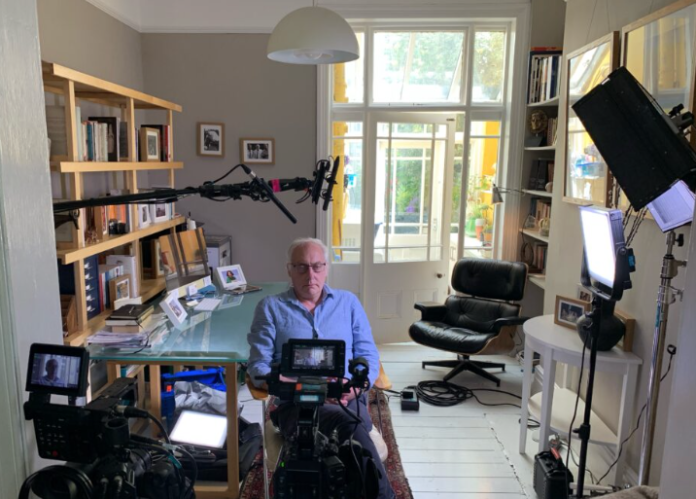- Return to sender - 20th February 2026
- Legal eagle - 19th February 2026
- Round Robin - 19th February 2026

Throughout 23 years with the BBC, and a 40 year journalistic career (when he was trained to use clear and simple language, avoiding jargon), our Editor, Welshman Phil Parry has always spotted as important, alternative stories to those that are dominating the news, and now comes disturbing evidence of exactly this, as more worrying information comes to light of world trade routes being affected by terrorist attacks.
Earlier Phil described how he was helped to break into the South Wales Echo office car when he was a cub reporter, recalled his early career as a journalist, the importance of experience in the job, and making clear that the ‘calls’ to emergency services as well as court cases are central to any media operation.
 He has also explored how poorly paid most journalism is when trainee reporters had to live in squalid flats, the vital role of expenses, and about one of his most important stories on the now-scrapped 53 year-old BBC Wales TV Current Affairs series, Week In Week Out (WIWO), which won an award even after it was axed, long after his career really took off.
He has also explored how poorly paid most journalism is when trainee reporters had to live in squalid flats, the vital role of expenses, and about one of his most important stories on the now-scrapped 53 year-old BBC Wales TV Current Affairs series, Week In Week Out (WIWO), which won an award even after it was axed, long after his career really took off.
Phil has explained too how crucial it is actually to speak to people, the virtue of speed as well as accuracy, why knowledge ofhistory and teaching the subject is vital, how certain material was removed from TV Current Affairs programmes when secret cameras had to be used, and some of those he has interviewed.

He has disclosed as well why investigative journalism is needed now more than ever although others have different opinions, how the coronavirus (Covid-19) lockdown played havoc with media schedules, and the importance of the hugely lower average age of some political leaders compared with when he started reporting.
It has always been important to me to highlight issues which are significant, but may not be the ones that are at the top of the news.
All eyes are fixed on the terrible tragedy in Gaza itself, as Israel battles to eradicate Hamas following the appalling massacre of 1200 of its civilians, and kidnapping of about 240 people.
It has been claimed that the response to this outrage was totally disproportionate, because as of December 15, over 19,000 Palestinians and Israelis have been reported killed.
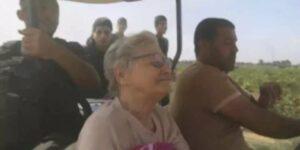
Yet another awful issue is also developing which may actually have a greater direct impact on the UK, so its centrality must be emphasised for people in Wales.
Over a thousand miles from Gaza, a naval crisis is unfolding that could transform the war between Israel and Hamas into a global affair, and carries with it implications for the world economy.

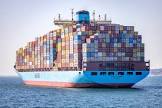
Since December 15 four of the world’s five largest container-shipping companies, CMA CGM, Hapag-Lloyd, Maersk and MSC, have paused or suspended their services in the Red Sea, and on Monday we heard that BP did so too. BP blamed the “deteriorating security situation”.
One ship owner said that its vessels would not use the Suez Canal in either direction “until the Red Sea passage is safe”, and some ships would have to be rerouted via the Cape of Good Hope.
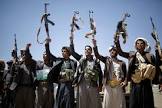
Smaller container operators, as well as dry-bulk carriers and oil tanker firms, may now also do the same.
Executives are concerned that their ships using the route through which they must pass, might be attacked by Iran-backed Houthi militants, because they have done so before, armed with sophisticated weapons, as they have escalated their attacks on global shipping flows.

America and its allies have been ramping up naval activity in the Middle East, and may even launch an assault on the Houthi’s base camp, in order to re-establish free passage.
The route in question (Bab al-Mandab) is a narrow strait between Africa and the Arabian peninsula through which an estimated 12 per cent of global trade by volume normally flows, and perhaps 30 per cent of global container traffic.

It has become a no-go zone as the Houthis, based in Yemen, attack shipping, ostensibly in support of the Palestinians in Gaza.
The strikes have been going on for weeks but have now escalated sharply. On December 15 the Houthis threatened to attack one ship, struck another one with a drone and launched two ballistic missiles at the MV Palatium III, one of which hit the vessel. The attack was the first ever use of an anti-ship ballistic missile. All the ships were Liberian-flagged.

On December 16 an American naval vessel, USS Carney, shot down 14 drones over the Red Sea while a British ship, HMS Diamond, destroyed another.
Perhaps these events should be leading the nightly television news, because they are just as important, if not more so, as the appalling events in Gaza itself.

It all comes down to seeing a slightly different story.
As well as making it relevant to Mrs Jones in Rhyl of course…
The memories of Phil’s decades long award-winning career in journalism (when spotting the real story was always paramount) as he was gripped by the incurable neurological condition, Hereditary Spastic Paraplegia (HSP), have been released in a major book ‘A GOOD STORY’. Order it now!

Publication of another book, however, was refused, because it was to have included names.
Tomorrow – Phil explains why working in a free environment has always been fundamental so that he could pursue his craft unhindered, and report stories like these.
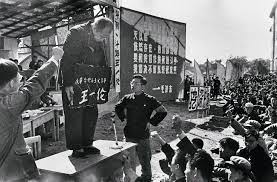
This is now underlined by a new book which explores how the authorities in China have glossed over past horrors.








